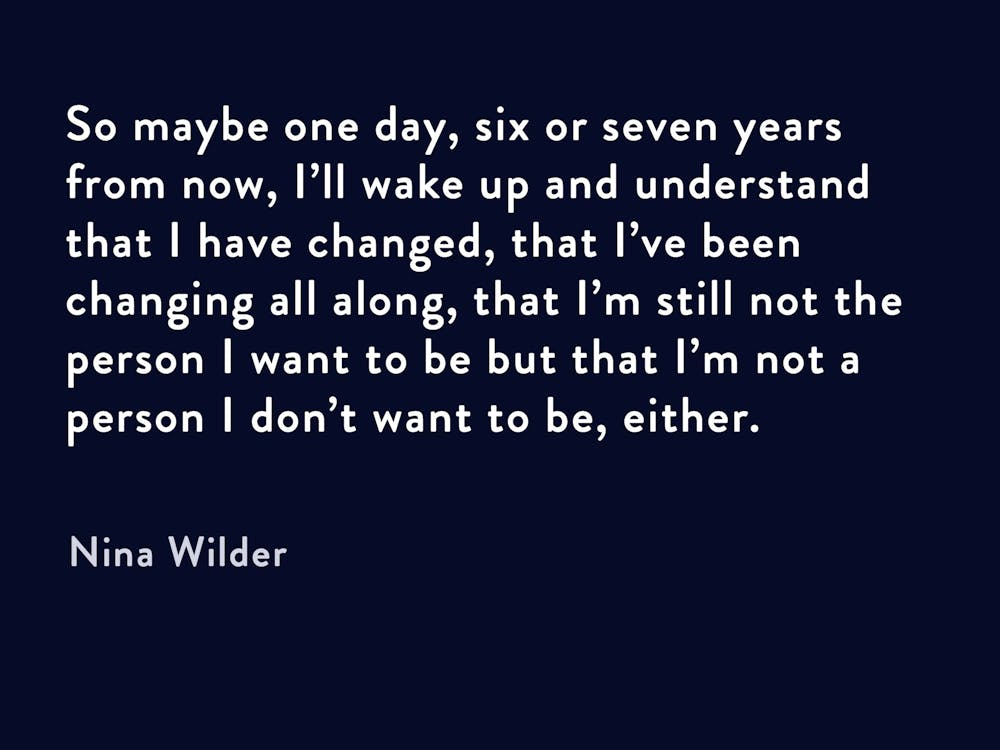When I was younger and everything seemed possible, I wanted to be a comedian. I practiced on my classmates, shouting jokes across the cafeteria and schoolyard, and my teachers sent me home with report cards that declared, “Nina is doing great academically but can’t bring herself to stop talking in class.” How could I? I loved the attention of my peers, their peals of laughter and wide grins, and I wanted it all for myself, all the time.
In hindsight, it’s obvious why I gravitated toward class clownery: I craved the feeling of being seen, of being acknowledged and validated, and I knew that admiration would not be won by my looks or my creativity or my athleticism. It would be won by my humor, so loud and abrasive and in-your-face you couldn’t bring yourself to tune it out. For the most part, it worked, and I carved out a modest spot in my school’s ecosystem, barely hiding my insecurities behind the armor of a sharp tongue and forced confidence.
By the time I was a senior in high school, I’d found my groove, and my selfhood felt whole — smart but funny, hurt but unbroken, loud but deliberate. And then I got to college and felt scared and alone and all those old insecurities stirred within me, and I leaned heavily on my sense of humor to compensate for the good qualities I thought I was missing. I stopped questioning whether a silence needed to be filled; I just went for it, without pause.
The first time I ever hung out with my ex-boyfriend, we watched a movie, and I pushed myself to riff drunkenly and enthusiastically over all of the dialogue. My roommate, who had known my ex for much longer than me, came home to find us doubled over on the couch, breathlessly repeating jokes back and forth like we’d known each other for years. After he left, she turned to me and said, “I think you’re the first person I’ve ever seen make him laugh,” and I felt my heart squeeze at the thought of his smile.
Months later, I made fun of something he told me in confidence, and when he did the same to me in return, the punchline landed like a kick to the chest, and I wept under the weight of the realization that perhaps all we had in common were our jokes. Our stupid, mean, desperate jokes.
So much of what drives entertainers is selfishness, the terrible compulsion to view others not as individuals but as an audience to be won over, whose only role is to listen and react. (After years of following and writing about celebrity culture, this much seems to be true.) Sometimes, I find myself slipping into this egotism — talking over friends, one-upping someone’s joke, using humor as a means for tearing others down — and when I reflect on the tired faces and hurt feelings, I feel awful, like I’m somehow rotten to the core, unfixable, doomed to be grossly self-centered forever.
When I lay in bed awake at night, I think about all the ways I could be a better person. I could exercise every day, I could spend less time on social media, I could write more, I could crack fewer jokes, I could be kinder — to others, to myself. Some nights, I think to myself, I will, and I fall asleep with a promise to mature into the woman I want to be. But when I wake, I’m unchanged, and I’ve slept in and already missed half the day, and I don’t really feel like going on a walk later, and the words I want to write won’t come.
And yet, when I remember myself as a freshman at my first Recess meeting, trying my hardest to be funny whenever I spoke in hopes that the editors would like me, I see someone so familiar but so distant. I imagine how surprised she would be to know what I experienced and created during my four years at Duke. I like to think that she’d be proud of me.
So maybe one day, six or seven years from now, I’ll wake up and understand that I have changed, that I’ve been changing all along, that I’m still not the person I want to be but that I’m not a person I don’t want to be, either. Maybe I’ll have rediscovered the largeness of the world and its endless promises that drove me forward for so long. Maybe I’ll have stopped being so hard on myself.
What I do know, what I can say without a shred of doubt, is that I’ll never stop trying to make you laugh, and you, graciously, will always be kind enough to listen.
Thank you so much for listening.
Nina Wilder is a Trinity senior and the outgoing Recess editor. She would like to extend her warmest congratulations and well wishes to Sarah and Sydny, who will be the best Recess editing pair since, well, her and Will. She thanks her Vol. 115 Recess staff, that ragtag group of insanely talented writers and editors, for making her senior year of college the best one yet, and she’d also like to thank Jake for taking a chance on her, and for taking her antics in stride. More than anything, she hopes she made you all laugh.
And, of course, she owes everything she’s achieved as editor to her podcast co-host, Gilbert-Addoms dormmate and best friend, Will. She will never forget following him to her first Recess meeting because it changed her life forever, and she will always think of Will when she thinks of Recess. She wouldn’t want it any other way.
Get The Chronicle straight to your inbox
Signup for our weekly newsletter. Cancel at any time.

